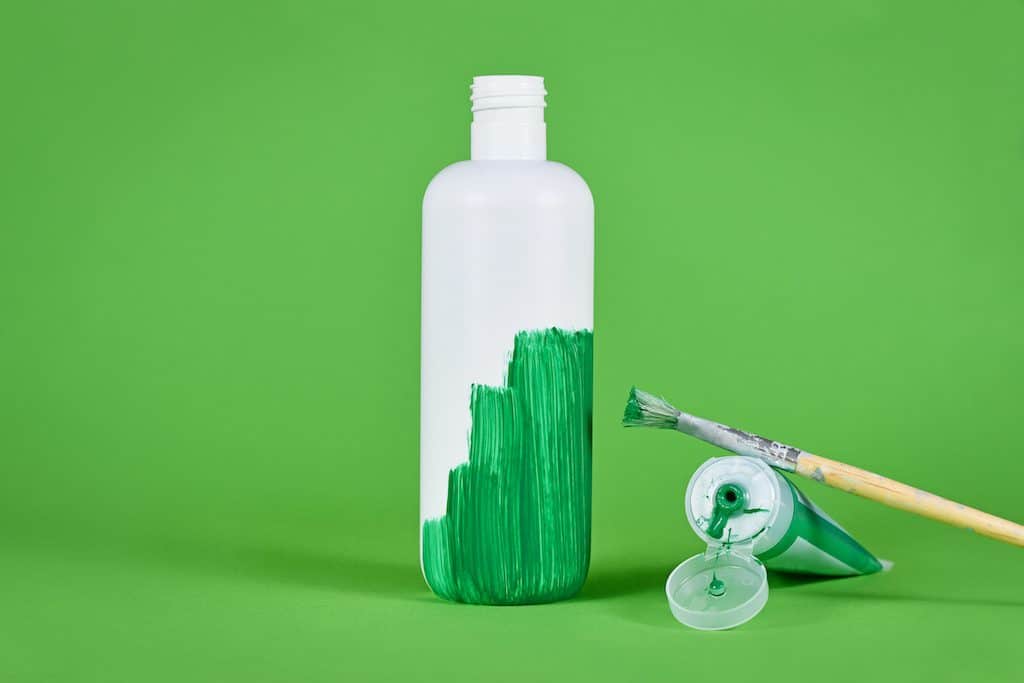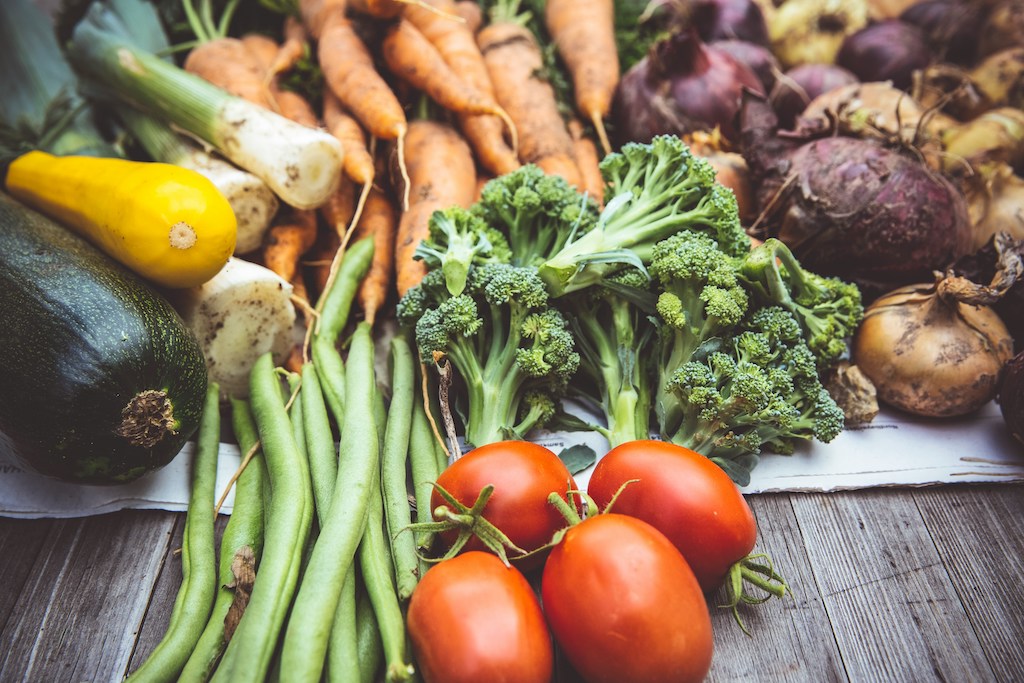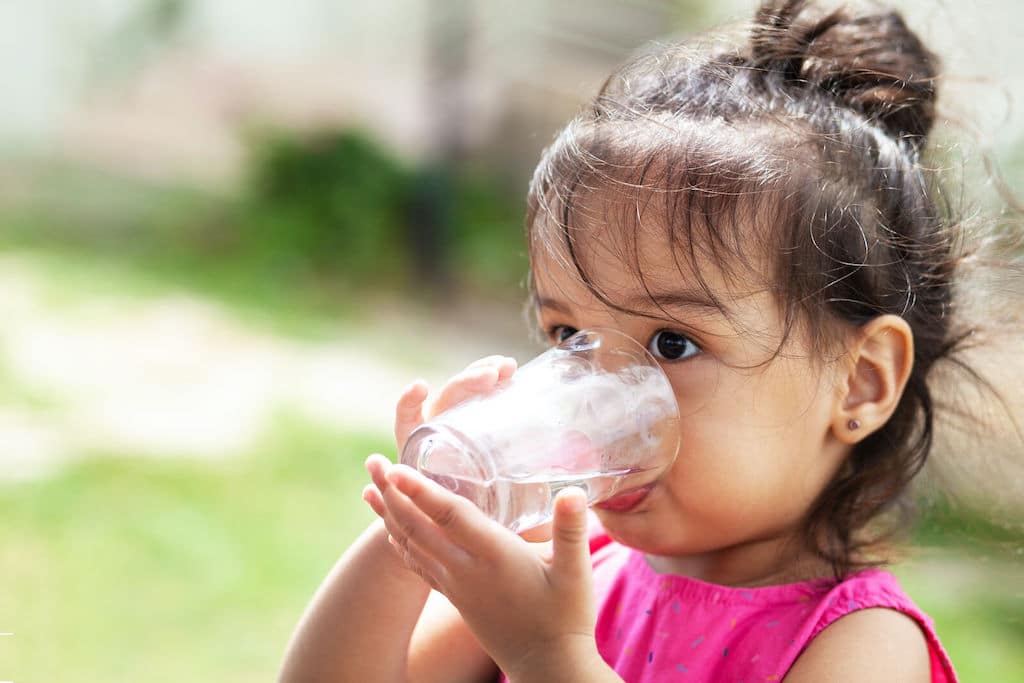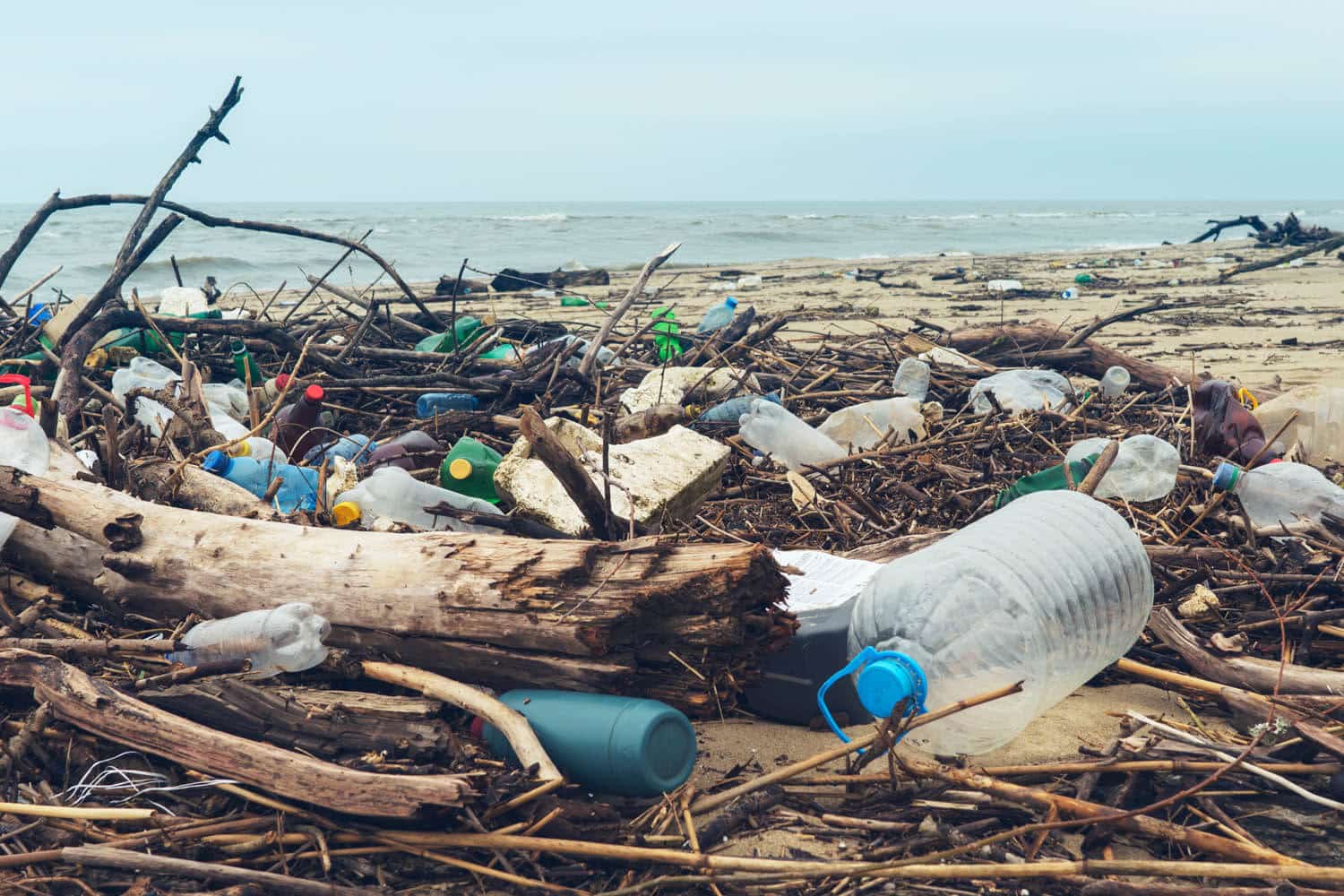It’s critical to know how to recognize plastic pollution greenwashing, especially during Earth month. People all over the planet are tapping into their collective environmental consciousness to take action for a safer, healthier world for all. Part of that positive action involves increased expression and demand for truly sustainable and environmentally friendly consumer products. But such efforts are unfortunately often met with a jump in harmful, intentionally deceptive tactics as corporations and plastic producers attempt to promote their products as more benign—or even beneficial — to people and the planet when in reality, they are not. This marketing strategy is known as “greenwashing.”
During this time of year, when greenwashed marketing for plastics and other products is on the rise, it’s important to highlight the misleading nature of these claims used to mask their true environmental and health impacts. Below, find our quick guide of plastic-related greenwashing ploys to avoid.
1. “Made of Recycled Ocean Plastic”
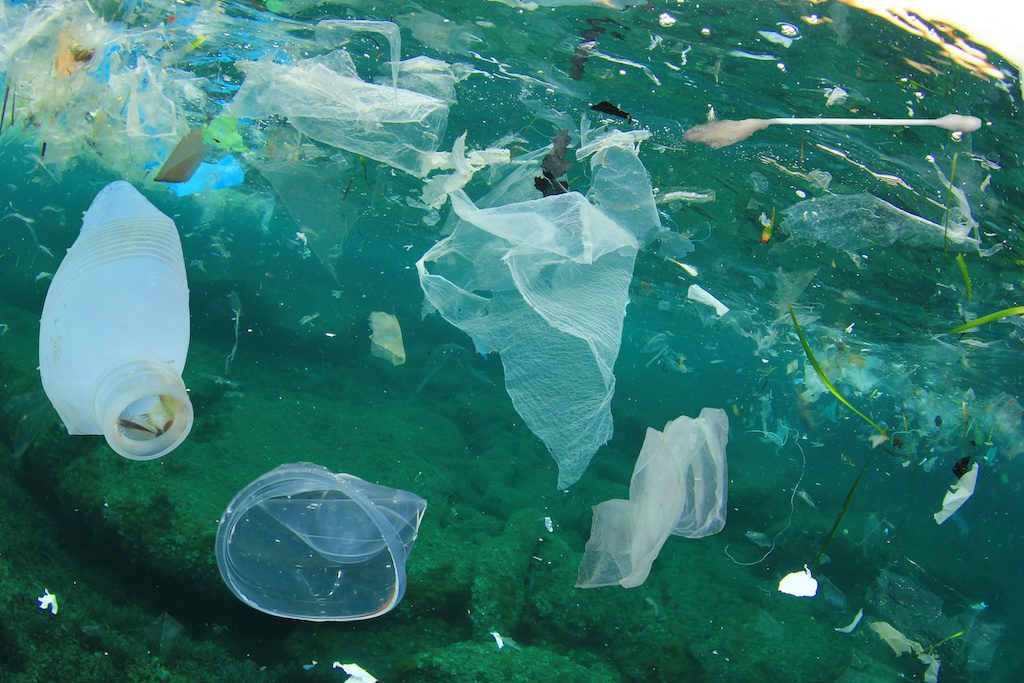
Products labeled with the phrase “Made of Recycled Ocean Plastic” give consumers the impression that a product is directly helping clean up the Earth by being made of plastic pollution that has been collected directly from the oceans. While collecting and turning plastic pollution pulled from the sea into new plastic products may seem helpful, we know we can’t clean up the problem if we don’t first turn off the tap. This process only really masks the core issue of how the plastic ended up in the ocean in the first place, and that is: continued plastics production. Items made from plastic collected from the oceans and coastlines, often fishing nets and ropes and microplastic, will only go on to cause more plastic pollution when used and ultimately disposed of — like all plastic items. By feigning “recycling” (really, downcycling) of plastic pollution, companies can divert attention from their role in perpetuating this crisis while pulling in profits.
2. “Made of Oxo-degradable Plastic”
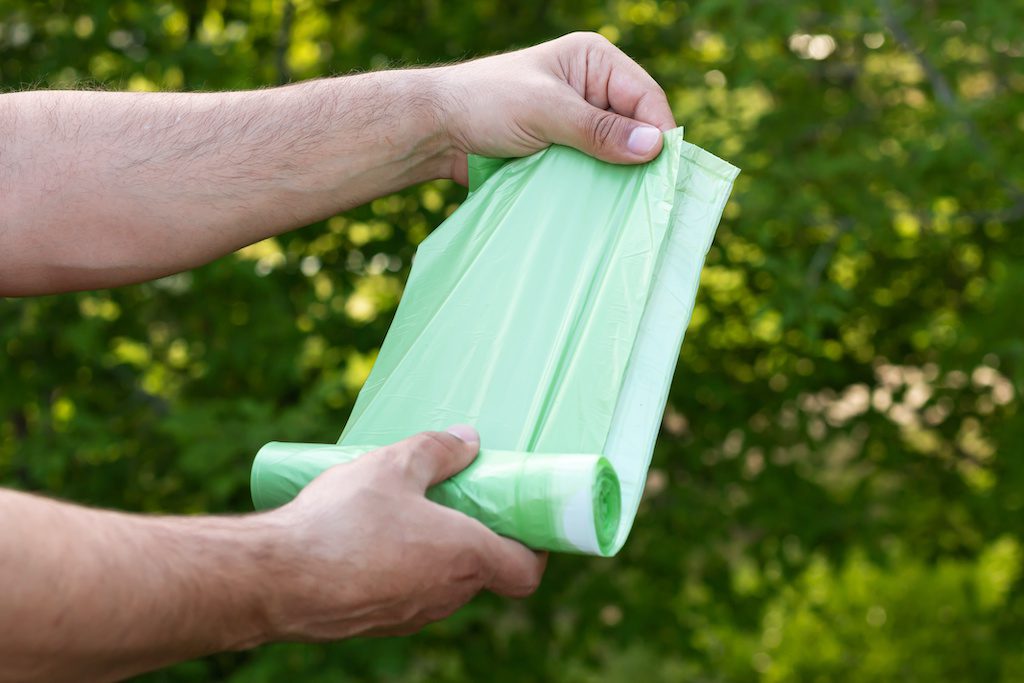
Plastics labeled “oxo-degradable” are often marketed as an eco-friendly alternative to conventional fossil-fuel plastics, but they are actually harmful. Oxo-degradable plastics are simply conventional plastics mixed with additives that are meant to quicken the rate at which they break up into smaller pieces. But this just speeds up the creation of microplastics, and in the environment or landfills these plastics may take years or even decades to break down while releasing harmful chemicals. Due to these issues, in 2019 the European Union banned use of oxo-degradable plastics.
3. “Made of ‘Bioplastic,’ ‘Biodegradable,’ or ‘Marine-degradable’ plastic” or “Made from Plants”
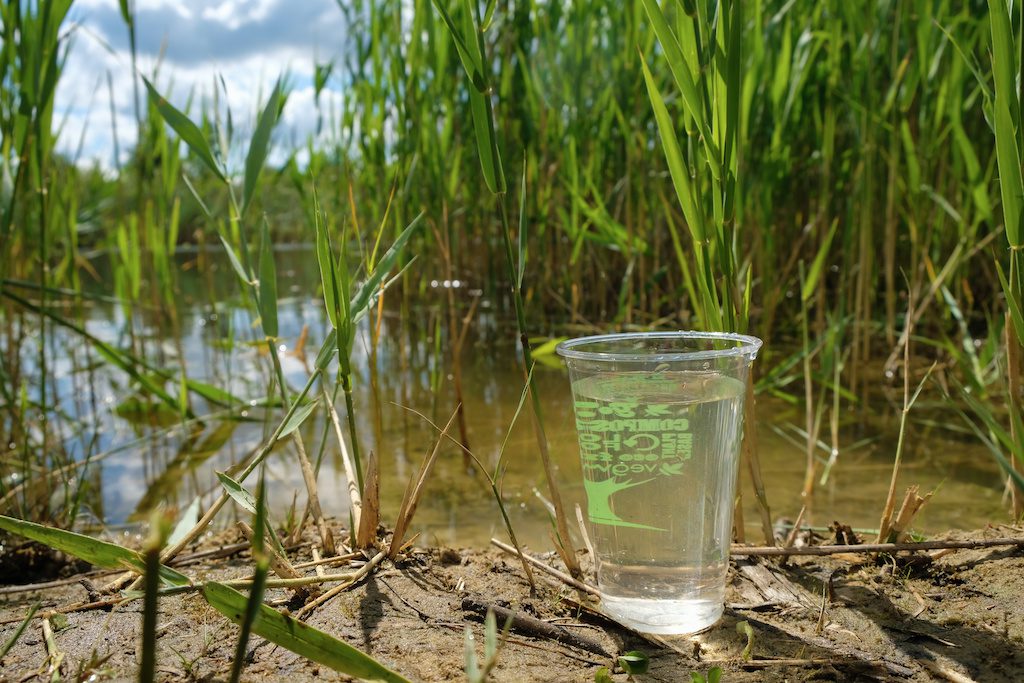
“Bioplastic,” “biodegradable,” or “marine-degradable” plastics or “made from plants” are phrases used to describe single-use materials made of fossil fuels, plants, or a mixture of these ingredients. Products made of these materials are certified to break down under highly specific conditions—like high-heat industrial composting facilities, which are not accessible in many areas. In most cases, such plastics are ultimately sent to landfills, incinerators, or the environment, where they do not break down as intended and continue to contribute to the global plastic pollution crisis. Bioplastics made of plants can involve large-scale, resource-intensive agriculture, contributing to deforestation, habitat loss, and water pollution, and being single-use, are rapidly discarded. Both plant- and fossil fuel–based plastics alike are manufactured with harmful chemical additives required to give these materials useful shape and function.
4. “Made of Fully Recyclable Plastic”

Just because a company claims their plastic is “recyclable” does not mean it will be recycled. Less than 9% of all plastics ever made have been recycled. Even when it is melted down for reuse, plastic is not truly recycled like other materials. A more apt term is “downcycled,” as recycled plastics are mixed with new plastics and toxic chemicals to produce low-value items like plastic park benches and plastic fast-fashion clothing. The plastic and petrochemical industries’ perpetuation of recycling as a solution to the plastic crisis is greenwashing. It delays, distracts, and deflects from real, just, equitable solutions to the plastic pollution crisis. Recycled plastics are notoriously contaminated, a fact that both contributes to significant wastefulness in plastics recycling, and concentrates toxins in recycled items which leach out during use and disposal. This, while expending water and energy resources, requiring toxic additives as well as additional content of new plastics, and causing pollution and environmental injustice. When you put plastic into a recycling bin or deposit it at your local transfer station, it is more likely to be shipped somewhere else to be landfilled, dumped, or burned.
5. “Made of Ocean-Bound Plastic”
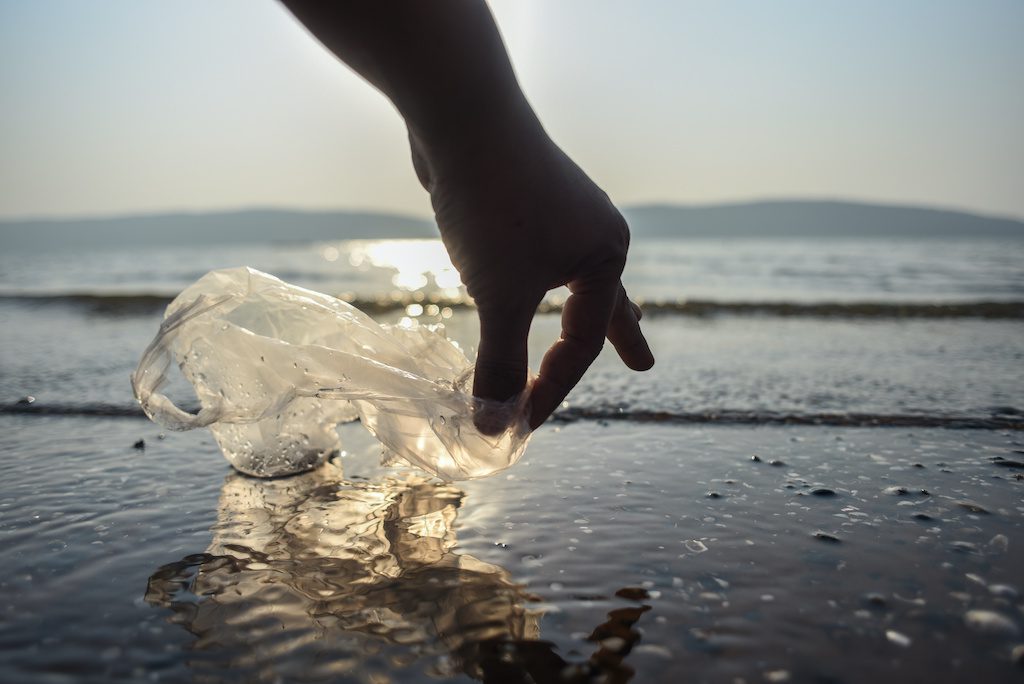
The phrase “Made of Ocean-Bound Plastic” is commonly used by companies selling products made of plastic that could be discarded in coastal environments in proximity to oceans and also lakes, rivers, and streams. While this label may give the impression that a product is helping divert plastics from waterways, it has no actual weight. In reality, most plastics end up in landfills and the environment, including in oceans and other waters. And with more than a third of the global population living within 60 miles of coastlines, there’s a good probability of any given plastic product eventually polluting waterways necessary to the health and wellbeing of people and the rest of nature. Scientists estimate at least nine to 14 million metric tons of plastic enter the oceans every year. What’s more, plastics pollute Earth’s waters all throughout their endless, toxic existence from production, transportation, use, and disposal.
Learn More and Take Action

We invite you to learn more about greenwashing in our April 2023 webinar, “Greenwashing: Debunking the Plastic Industry’s False Narrative.” Learn more about these and other common terms and tactics used by the plastics industry:
It’s important to distinguish greenwashed products from genuine, sustainable, eco-friendly alternatives to single-use plastics — such as the truly compostable, regenerative, nontoxic mushroom mycelium and seaweed materials produced by Plastic Pollution Coalition Members like Ecovative, LOLIWARE, and Sway.
Real solutions to plastic pollution stop wastefulness at the source. Engage with plastic-free principles — refill, regenerate, repair, share, reuse, and refuse single-use — and advocate for necessary systems change.
